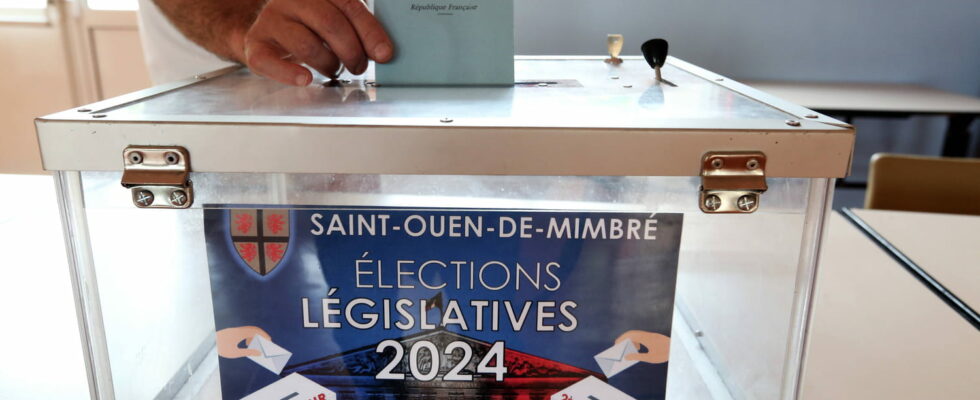How to vote in France in the 2024 legislative elections, which take place on June 30 for the first round and July 7 for the second round?
This Sunday, French citizens are called to the polls to elect their deputies to the National Assembly. The vote, which usually takes place every 5 years, is this time brought forward, following President Emmanuel Macron’s decision to dissolve the National Assembly on June 9, following the heavy defeat of the majority in the European elections. The election should allow voters to choose those who will vote on laws until the end of the five-year term and will give their confidence to the next government. Thus, in the event of an opposition victory, a cohabitation could be on the horizon for the Head of State. However, uncertainty remains over the majority that will emerge from the ballot boxes, with no political force seeming able to obtain an absolute majority (289 seats out of 577) in the future Assembly, even if the National Rally could come close according to polls conducted during the campaign.
To vote in this election in France, you must be registered on the electoral lists of your municipality. This registration must have been made no later than the sixth Friday preceding the vote. Young people turning 18 at the latest the day before the election are automatically registered if they completed the census formalities at 16. Once this condition is met, voters will be able to go to their polling station, generally located near their home, with an identity document. Polling stations will be open from 8 a.m. to 6 p.m., with a possible extension until 8 p.m. in certain large cities if a prefectural decree provides for it.
Voting rules in France
When they arrive at the polling station, voters will have to present a document proving their identity: national identity card, passport, driving license, etc. The electoral card, although useful, is not obligatory. The members of the office will check that the voter is indeed registered on the office’s electoral list.
The vote itself follows a few simple but strict rules. The voter must grab an envelope as well as several ballots from the candidate lists (“at least two” according to the government website Vie-publique.fr). Passing through the voting booth is mandatory in order to guarantee the confidentiality of the vote. Once in the voting booth, the voter inserts the ballot of his choice into the envelope before sliding it into the transparent ballot box, under the gaze of the president of the polling station. He must then sign the voting list, thus proving that he has voted. His electoral card will be stamped to certify this as well.
Any obvious indication of the vote or any addition to the ballot will render the vote null and void. The Ministry of the Interior indicates that “any discussion or deliberation by voters is prohibited inside polling stations”, based on the electoral code. A fine is even provided for – 15,000 euros – and up to one year of imprisonment. While flexibility is required regarding possible accompanying persons (children, help for disabled people), pets, or clothing, certain abuses can be considered as breaches of the secrecy of the vote (taking a photo or selfie in the polling station or voting booth, clothing displaying a political logo).
The rules of power of attorney
People who cannot go to the polling station on election day have the option of voting by proxy, by authorizing another voter to vote in their place. Since 2022, it has been possible to give proxy to any trusted voter, even if they are not registered in the same municipality. Each agent can only hold one power of attorney, with exceptions.
The power of attorney can be made via an online request on the website maprocuration.gouv.fr, then by going to a police station or gendarmerie to have your identity verified and your power of attorney validated. It is also possible to go directly to a police station, a gendarmerie or a consulate for residents abroad, to complete the procedure from start to finish. The proxy can be established up to a few days before the election, but pay attention to delivery and processing times. Doing it too late risks not allowing the town hall to take it into account in time.
French citizens residing abroad and registered on a consular electoral roll can also vote in the legislative elections, either at the ballot box in their consulate, by proxy, or online. To vote online, they must first register on the online voting site.
After the election, elected deputies work to form political groups. During its first plenary session where all MEPs meet, the new Parliament elects a president. At a subsequent session, Parliament elects the President of the European Commission and then examines and approves the entire college of commissioners. The MEP is elected for a 5-year term. On the other hand, his role as a committee member is divided into two parts. Commissions are renewed mid-term, in other words, every two and a half years.
